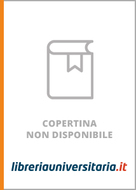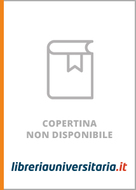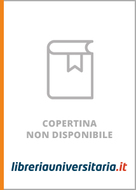
Women, the Law, and HIV/AIDS in Africa
A Conundrum For The Legislature?
- Editore:
Vandeplas Publishing
- EAN:
9781600420375
- ISBN:
1600420370
- Pagine:
- 172
- Formato:
- Paperback
- Lingua:
- Inglese
Descrizione Women, the Law, and HIV/AIDS in Africa
Since the discovery of AIDS in 1981, the pandemic has ravaged through all continents of the world, but the impact has been greatest in Sub Saharan Africa where 68% of the world's infected persons live. Women are hardest hit with 50% of infected adults in 2007 being women. There are currently 13.3 million women living with HIV and AIDS in Sub Saharan Africa, making it critical to further focus attention on women of the region. This book attempts to highlight the plight of these women, and the challenges they face daily within their particular societal context. With the advent of and access to antiretroviral drugs and improved technology in the management of HIV and AIDS, it has been rendered a chronic disease in developed countries, but not so in Sub Saharan Africa. The first chapter of this book examines the epidemiology, manifestations and general management of the problem in a setting where prevention and access to antiretroviral drugs has been compounded in many ways by various factors including poverty and lack of regulations that govern rights. The socio-cultural dimensions are examined, reflecting the impact of HIV/AIDS on women, and the urgent need for relevant policies and legislation in the African continent. The law inevitably plays an important role and the issue in most cases is not whether there is an acceptable or even applicable law in place, but whether is enforced. This book illustrates that there exist many good laws both at domestic and international treaty levels to address many of the challenges women face in Africa. The United Nations Convention on the Elimination of all Forms of Discrimination against Women (CEDAW), one such existing international treaty, is among the strongest women's rights treaties, with many African countries signatory to it. This has not alleviated the predicaments of many African women, who are still suffering from all kinds of discrimination in virtually every aspect of their lives. Regional human rights initiatives, such as the Human and People's Rights Commission, which is charged by the African Charter to promote human rights and ensure their protection in Africa, as well as the African Court of Human Rights, which is mandated to be knowledgeable about all aspects concerning the interpretation and application of the charter, put forward in their provisions protection for the women. Again, the challenge is how to prompt African States to respect and implement women's rights in a sustained manner. This is critical for African countries, where, without government commitment, successful implementation would be uncertain, possibly unachievable. This book highlights the need for the governments to forge partnerships not only with their own officials, and other stakeholders but also with women and various women representative groups. The contributions of women to policy discussions on HIV/AIDS should be systematically solicited. Strategies, policies and activities to reverse the AIDS pandemic in the continent cannot succeed unless women are empowered to meaningfully contribute and participate to these, and are an integral part of the leadership that sets the agenda for change and development.






![Journal General De La Litterature Etrangere, Ou Indicateur Bibliographique Et Raisonnee Des Livres Nouveaux [&c.] Qui Paraissent Dans Les Divers Pays](https://img2.libreriauniversitaria.it/STR/190/623/9781145456235.jpg)





